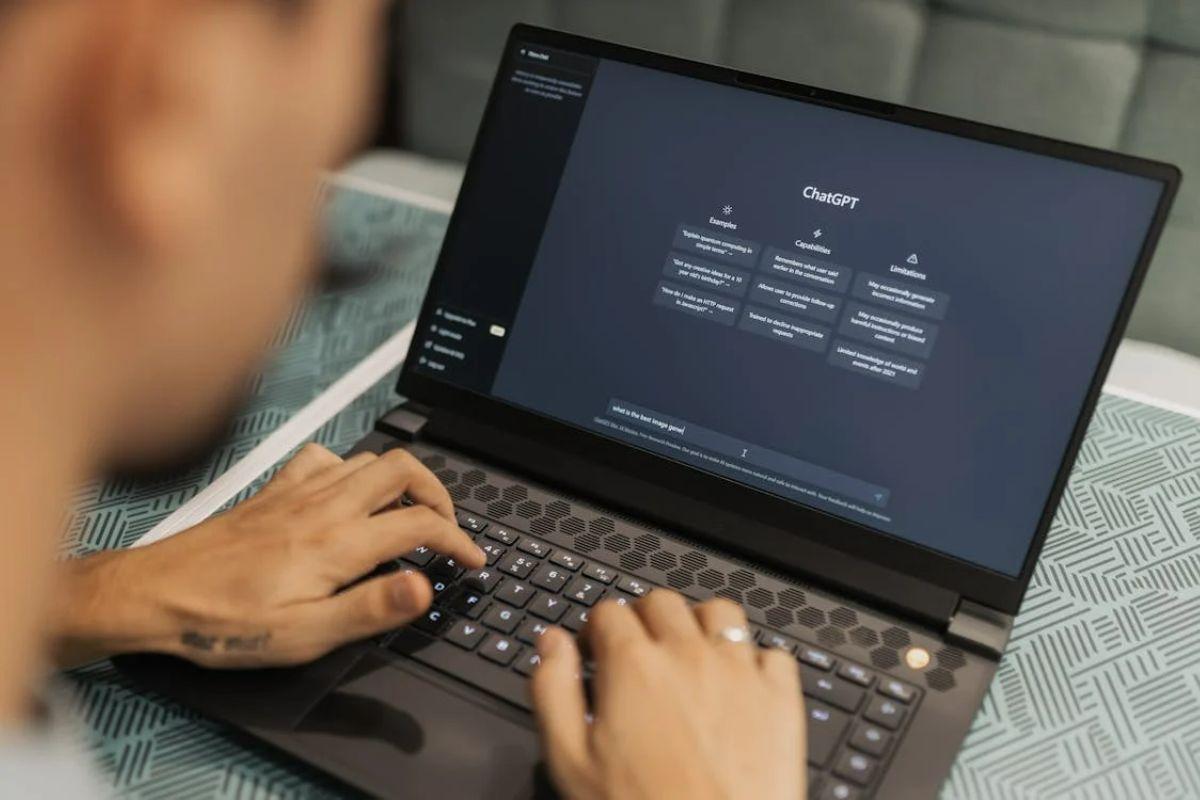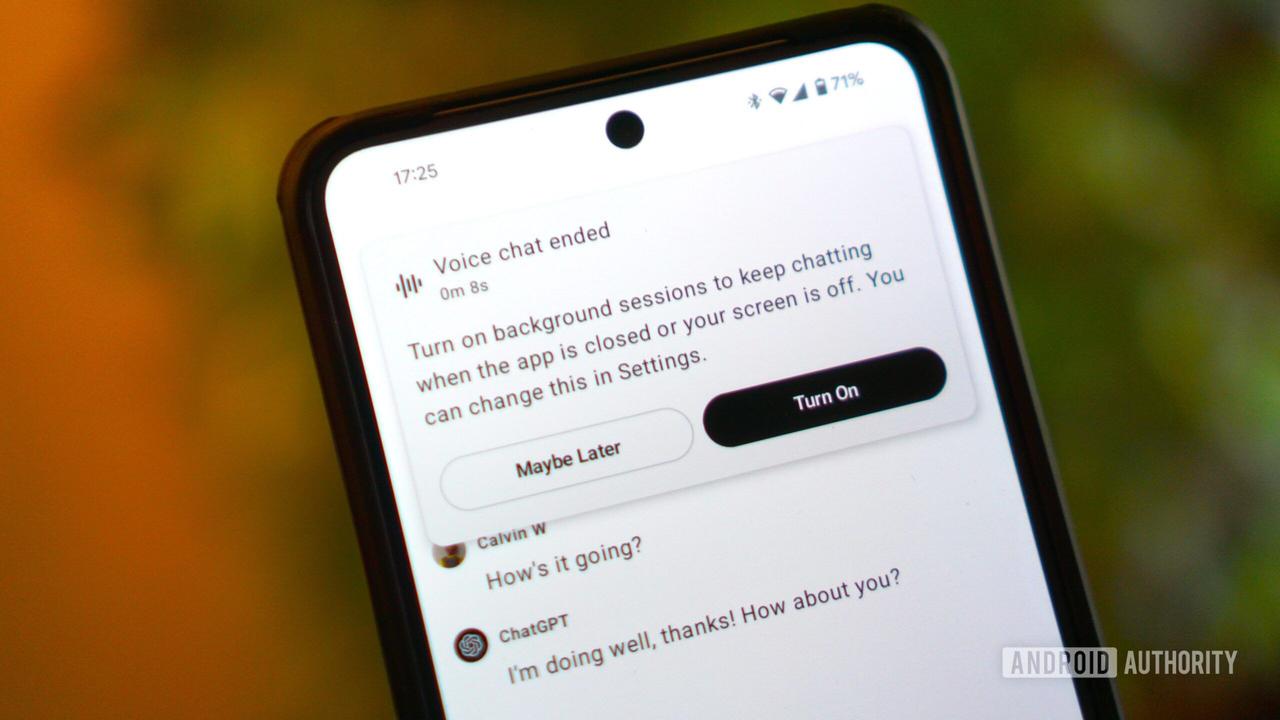OpenAI Reportedly Developing 'Clinician Mode' for ChatGPT, Raising Questions About AI in Healthcare
3 Sources
3 Sources
[1]
ChatGPT could soon get a "clinician mode," but I'll stay on the fence
Clinician Mode could restrict the source of advice to medical research and trusted data. A few weeks ago, a medical researcher reported a rather curious case of AI-induced medical flub, detailing the case of an individual who consulted ChatGPT and went into a psychotic spiral due to bromide poisoning. Such concerns have been raised by experts for a while now, and it seems OpenAI aims to counter them with a dedicated ChatGPT mode for medical advice. The tall hope Tibor Blaho, an engineer at AI-focused firm AIPRM, shared an interesting snippet they spotted in the code of ChatGPT's web app. The strings mention a new feature called "Clinician Mode." The code doesn't go into detail about how it works, but it seems like a dedicated mode for seeking health-related advice, just the way safety guardrails are implemented for teen accounts. Notably, OpenAI hasn't made any official announcements about any such feature, so take this news with the proverbial pinch of salt. But there are a few theories floating around on how it could work. Justin Angel, a developer who is a familiar name in the Apple and Windows community, shared on X that it could be a protected mode that limits the information source to medical research papers. For example, if you seek any medical advice related to wellness issues or symptoms, ChatGPT will only give a response based on information it has extracted from trusted medical sources. That way, there are fewer chances of ChatGPT doling out misleading health-related advice. The blunt reality The idea behind something like "Clinician Mode" is not too far-fetched. Just a day ago, Consensus launched a feature called "Medical Mode." When a health-related query is pushed, the conversational AI looks for answers "exclusively on the highest-quality medical evidence," a corpus that includes over eight million papers and thousands of vetted clinical guidelines. The approach sounds safe on the surface, but the risks persist. A paper published in the Scientific Reports journal last month highlighted the pitfalls of pushing ChatGPT in the medical context. "Caution should be exercised, and education provided to colleagues and patients, regarding the risk of hallucination and incorporation of technical jargon which may make the results challenging to interpret," the paper warned. But it appears that the industry is moving steadily towards AI. Recommended Videos The Stanford School of Medicine is testing an AI-powered software called ChatEHR that allows doctors to interact with medical records in a more conversational fashion. OpenAI also tested a "medical AI assistant" in partnership with Penda Health a few months ago and announced that the tool reduced the chances of diagnostic error by a 16% margin.
[2]
ChatGPT's Next Update Could Bring a Clinician Mode and Smarter Voice Chat
* Voice Mode is said to get a "Speak First" upgrade * This would allow ChatGPT to greet the user first * Recently, OpenAI added third-party app support to ChatGPT OpenAI has been shipping new features at a breakneck pace over the last few months. Recently, the San Francisco-based artificial intelligence (AI) giant launched the Sora app for iOS and announced third-party app connectivity within ChatGPT. Now, a tipster claims to have found evidence of a new "clinician mode" in the Chatbot, which could be a specialised healthcare or medical discussion feature. Interestingly, the AI firm is said to be developing a specific "model speaks first" prompt for voice chats. OpenAI Could Soon Offer a Clinician Mode Tibor Blaho, Lead Engineer at AIPRM, shared new strings of code from the web version of ChatGPT in a post on X (formerly known as Twitter). These strings mention a new clinician mode. It is described as a ChatGPT Workspace offering, but no other details were mentioned. Netizens have speculated that the mode refers to the medical and healthcare consultancy capability of ChatGPT. While some believe that OpenAI is developing a dedicated medical GPT for this mode, it is likely that if a clinician mode is being built, it will be powered by GPT-5 itself. The belief comes from the fact that the AI giant highlighted health as a major focus point of GPT-5 when it was introduced in August. At the time, the company had said, "GPT‑5 is our best model yet for health-related questions, empowering users to be informed about and advocate for their health." OpenAI also mentioned that, unlike older models, GPT-5 "acts more like an active thought partner" and can proactively flag potential concerns. The model was also said to be capable enough to ask questions to refine its responses based on the user's context, knowledge level, and geography. The clinician mode could be a dedicated space for these capabilities, allowing users to take supplementary medical consultations from the chatbot before or after they visit a doctor. Notably, the AI giant did highlight that ChatGPT does not replace a medical professional. The second feature mentioned in the strings is labelled as "model speaks first prompt." The tipster claimed that this feature is likely to be added to the Voice Mode. Its description mentions, "Greet the user in a friendly way. The user's locale is {locale}, use their language. Be brief - no more than a few words." As a note, just because features are mentioned in the code, it is no confirmation that it is being developed by the company. Developers often forget to remove code for discarded projects and add projects that are still in the pipeline. Often, these features never make it to the public. Unless OpenAI confirms these two capabilities, we would recommend taking this information with a pinch of salt.
[3]
OpenAI may be developing a new Clinician Mode for ChatGPT: Here's what we know
Another feature, "model speaks first," could allow ChatGPT to greet users automatically in voice mode. OpenAI is reportedly working on a healthcare focused feature for its chatbot ChatGPT as per new code reference spotted by a tipster in its web version. The codes were spotted by Tibor Blaho, Lead Engineer at AIPRM. He suggested that the codes include the reference of "Clinician Mode", potentially aimed at enabling medical or health-related interactions within the chatbot. Blaho took to X to share the code snippets and describe Clinician Mode as part of ChatGPT's Workspace offerings, though details are still limited. This has sparked speculation that OpenAI is developing a specialised environment for health discussions, possibly using its GPT-5 model, which was hailed as a significant advancement for health-related use cases. When GPT-5 was released in August, OpenAI stated its ability to better understand medical queries, guide users through health decision-making, and proactively ask clarifying questions to tailor responses. However, the company has repeatedly stated that ChatGPT is not a replacement for medical professionals, and this stance is likely to continue even if a clinician-focused mode is introduced. In addition to Clinician Mode, the leaked code refers to a new "model speaks first" prompt. This feature could be linked to ChatGPT's voice capabilities, allowing the AI to proactively greet users with brief, friendly responses in their native language. That said, the presence of these features in the code does not confirm that OpenAI is actively developing or planning to release them. As with other unreleased experiments, some of these may never make it to public versions of ChatGPT unless officially announced by the company. In the meantime, OpenAI, RazorPay and NPCI have joined hands to enable the UPI payments on ChatGPT. This means that the users can directly buy things within the chat. However, the feature is currently in the pilot phase and may take some time to roll out for the public.
Share
Share
Copy Link
OpenAI is rumored to be working on a 'Clinician Mode' for ChatGPT, potentially restricting medical advice to trusted sources. This development comes amid growing concerns about AI's role in healthcare and efforts to balance innovation with patient safety.
OpenAI Reportedly Developing "Clinician Mode" for ChatGPT
OpenAI, the company behind the popular AI chatbot ChatGPT, is reportedly working on a new feature called "Clinician Mode." This development, discovered through code snippets in ChatGPT's web version, hints at a specialized healthcare-focused capability for the AI assistant
1
2
.
Source: Gadgets 360
Potential Features and Implications
While details remain scarce, industry experts speculate that Clinician Mode could restrict ChatGPT's information sources to medical research papers and trusted data. This approach aims to reduce the risk of the AI providing misleading health-related advice
1
.The development comes in the wake of concerns about AI-induced medical misinformation. A recent case highlighted the potential dangers when an individual consulted ChatGPT and experienced a psychotic episode due to bromide poisoning
1
.Industry Trends and Comparisons
OpenAI's move aligns with broader industry trends. Recently, Consensus launched a "Medical Mode" feature that relies exclusively on high-quality medical evidence from millions of papers and vetted clinical guidelines
1
.However, experts caution against over-reliance on AI in medical contexts. A recent paper in Scientific Reports warned about the risks of AI hallucinations and the use of technical jargon that may be challenging for patients to interpret
1
.Related Stories
Additional ChatGPT Enhancements
Alongside Clinician Mode, the code snippets also revealed a potential "model speaks first" feature for ChatGPT's voice mode. This enhancement could allow the AI to greet users proactively in their native language, further personalizing the interaction
2
3
.OpenAI's Stance and Future Outlook
It's important to note that OpenAI has not officially announced these features, and their presence in the code doesn't guarantee implementation. The company has consistently emphasized that ChatGPT is not a replacement for medical professionals, a stance likely to continue even with the potential introduction of Clinician Mode
2
3
.As AI continues to evolve in the healthcare sector, initiatives like Stanford School of Medicine's ChatEHR, which allows doctors to interact with medical records conversationally, showcase the ongoing integration of AI in medical practices
1
.References
Summarized by
Navi
[1]
Related Stories
Recent Highlights
1
Google Gemini 3.1 Pro doubles reasoning score, beats rivals in key AI benchmarks
Technology

2
Meta strikes up to $100 billion AI chips deal with AMD, could acquire 10% stake in chipmaker
Technology

3
Pentagon threatens Anthropic with supply chain risk label over AI safeguards for military use
Policy and Regulation








